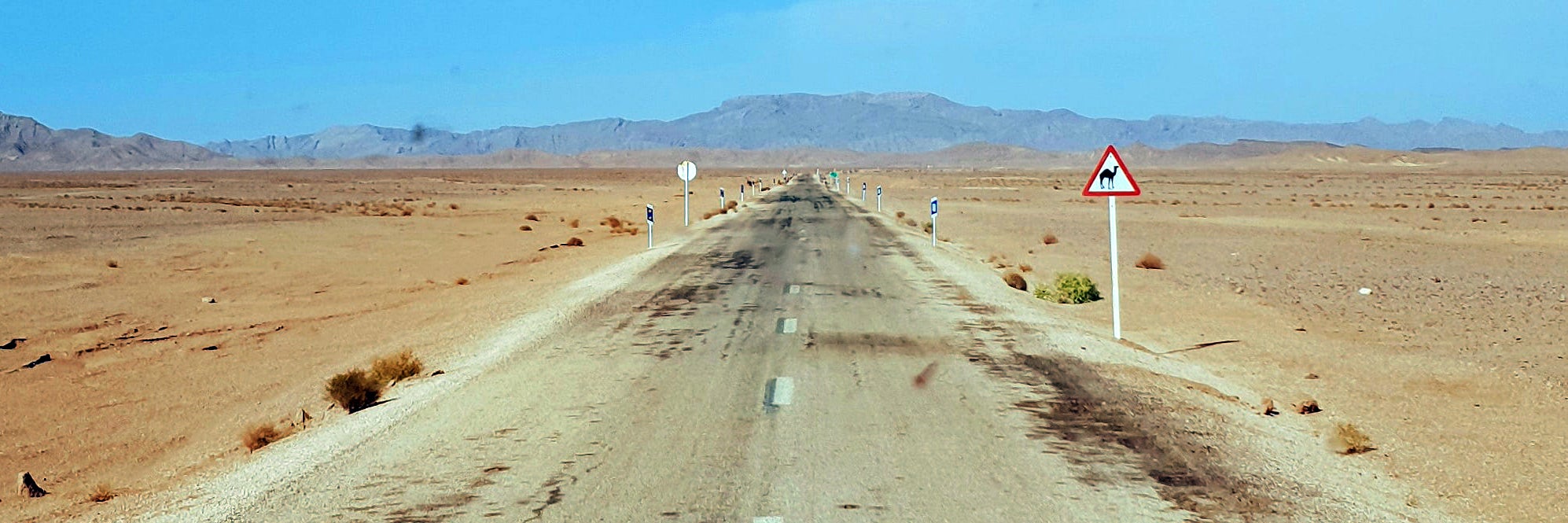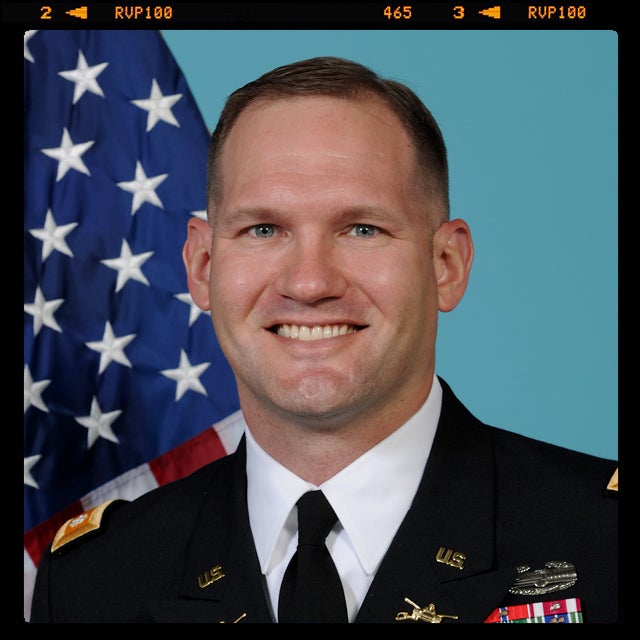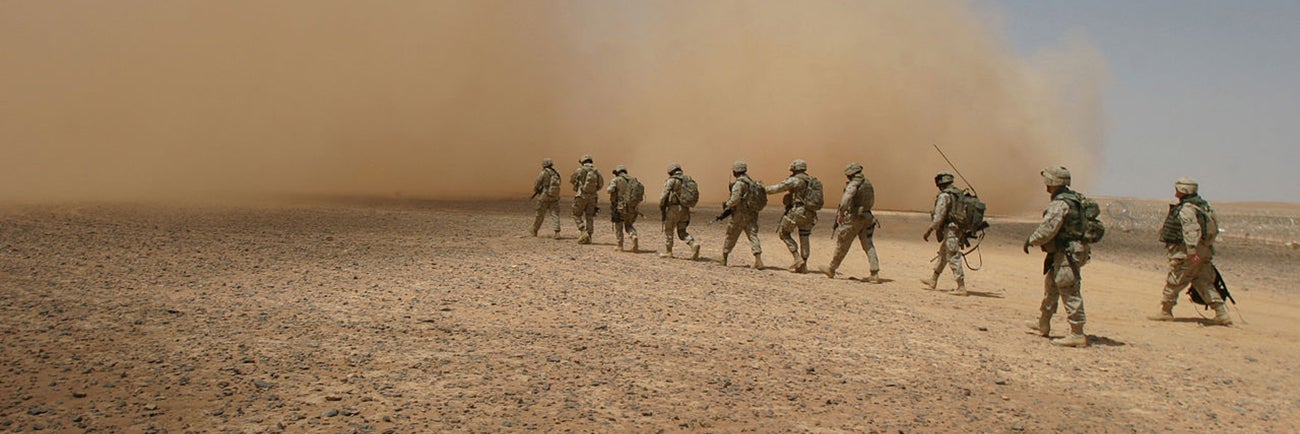

Lieutenant colonel Joe Heaton is graduate of the United States Military Academy, Class of 2000, where he majored in Arts, Philosophy, and Literature, with an emphasis on Just War Theory. He is currently an Assistant Professor of Military Science and is studying for a Masters Degree in Political Science at Boise State University. During his time of service, he has deployed to Iraq four times and Afghanistan once. His previous assignment was as an advisor to Counternarcotic Interagency Taskforces in Guatemala.
War Stories From a Fobbit – Who Knew That Year Might Have Meaning?
In April of 2009, I flew on a chartered Boeing 777 from Fort Bliss, Texas, to Ali Al Salem Airbase, then took busses to Camp Arifjan, Kuwait. From there, I got on a C-130 military cargo plane that took me to Forward Operating Base (FOB) Garry Owen outside of Amarah, Iraq. Our approach to the base’s airfield was a slow descent into an abyss of isolation. During previous flights in the region, the takeoffs and landings of C-130s were often a bit of a ride. The pilots feared anti-aircraft fire, so they came in at a steep angle and pulled up while popping flares to land. When they took off, they pulled up and down and left and right to be hard targets. It was a rollercoaster. Not this time, though. This time it was a slow, unexciting descent into a year of near seclusion.
The base was aptly named by the descendants of George Armstrong Custer’s 7th Cavalry, not because of the raucous nature of the lyrics of his favorite song, but because the desolation that surrounded us represented the history of the 7th Cavalry. This was southeast Iraq. The land around our base was nearly barren. We were technically in the Fertile Crescent, but it became apparent that “fertile” is a relative term. For this year, I was an assistant planning officer. My job was to stare at a computer screen, and when the situation called for it, to talk on the radio or telephone. My assignment for this year was to be what we disparagingly call a “Fobbit,” due to the popularity of the Lord of the Rings movies at the time combined with resentment for those who never leave the FOB and take the risks that others take.
There were 22 rocket attacks against our base during that year. We faced a couple of threats from improvised rocket assisted mortars. We had maybe 25 days out of 365 that we had to be externally focused. That left about 340 days of sheer and utter isolation and boredom. Those of us who could not leave the base were isolated from the broader reaches of society, cut off from family except by Skype™ or choppy telephone calls. We had only each other, and very little to do for entertainment. Single soldiers without a family often had it worse. There is only so much you can chat with your mom and dad from thousands of miles away and feel gratified. Girlfriend and boyfriend relationships rarely survive this kind of separation for so long. While your friends support you, you know that they want to have a life, and you feel guilty pressing them for too much of their time.
Why am I writing this, as part of an essay featured in the “COVID Conversations” series? It is because I believe there are lessons to be learned from these experiences that can apply to all of us as we “social distance” and isolate in response to COVID-19.
Through the years of war and conflict, the Army has determined with the help of scientists that there are five forms of wellness, or five dimensions of strength: physical, emotional, social, family, and spiritual. The Army has turned its attention to understanding wellness in this more comprehensive way through increased attention on “CSF2”: Comprehensive Soldier and Family Fitness. While I am not a trained instructor in CSF2, I contend from my own experiences that all five dimensions are interlinked. Failure to tend to one dimension can diminish all dimension from achieving their potential.

The Experience of Seclusion
During my time at FOB Garry Owen, I spent no less than 12 hours a day staring at a computer, writing orders and plans for other people. My route to and from work each day was a 200-yard walk through a gray fortress of concrete barriers that we call T-walls. Gray gravel covered the ground except for those places where wooden pallets bridged standing water. Our uniforms were gray. During the wet season, the skies were gray. Many might think of “Army green,” but for this year, there seemed to be little but the drabs of gray, tan, and the black of night.
At first, I tried to deal with it by playing video games on the PSP™, with the security of a poncho as my wall, giving me personal space in our communal tent. Many of us would tee up a new television series or keep up-to-date with the latest movies from the bootleg copies we had access to. Those kinds of diversions certainly help.
But this is not enough, because we also have a need to feel value in being right where we are. We need something to look forward to other than just the escape. In each of my deployments, people handled this slightly differently. There appeared to be a common theme of regularity – a scheduled event each week. During this tour, that took the form of a poker night on Fridays since it was generally quiet on the Islamic Sabbath in our sector. On another tour, the chaplain established what he called “Holy Smokes.” It was a weekly session of sitting around in a circle smoking cigars and chatting. When I was last in Iraq, the Regional Security Office (RSO) put together a weekly quiz game where each unit, section, or team would compete for the weekly prize. The winner would add an item to the “trophy” before the next week’s game. Small gimmicks can achieve big effects, and the entire base looked forward to the event.
The beauty of these types of events is that they are simple to do, with outsized impact relative to the planning and resources required. In the terms of our current social-distancing guidelines, families can possibly achieve a similar effect through starting a simple Family Game Night, or choosing another activity that they enjoy doing together. The key is for it to not be a part of the daily routine; therefore, the effect is best achieved when you abstain from that activity the rest of the week. Give yourself something to look forward to and get excited about, and possibly like the RSO team, prepare for all week with anticipation.
Thoughts for Dealing with the Day-to-Day
We still have the larger problem of the day-to-day grind. The three things that I have found to have the greatest affect to increase personal resilience in relative seclusion are to exercise, isolate further, and reflect, each daily.
Exercise. It may seem cliché for a soldier to recommend exercise. Sergeant Major of the Army (SMA) Daniel Dailey may be most famous for a single quote. He said, “Exercise isn’t the most important thing we do. It is just the most important thing we do every day.” He did not say that because he is a Ranger and we need an Army of fit warriors who can “move further, faster, and fight harder than any other soldier.” We need that, sure, but that was not his reason. The rationale that he gave was psychological.
To SMA Dailey, if you look and feel like a soldier, then you will act like one. Perhaps you don’t want to look, feel, or act like a soldier, but the spirit of his statement still applies: Numerous studies attribute mental health benefits to exercise. Pertinent to our current situation, it can reduce anxiety and stress, and has an anti-depressant effect. We might feel overwhelmed with the tasks that we have before us in preparing online classes, figuring out how to continue research, or any number of things. We might feel like we simply do not have time to exercise. If you invest 15-30 minutes a day making your mind work more efficiently by taking care of your body, might you get returns on investment in productivity that more than pay for it? I believe you would. As stated before, the five forms of wellness are interlinked. We risk damaging them all when we neglect one or another.
Further Isolation. This may seem to be a paradoxical recommendation for a period like this; however, you should take some time to isolate yourself even more in a non-work-related manner. Spending 12 or more hours in close proximity with the same few people for weeks on end can be taxing regardless of your personality, and it can put strains on relationships. While it is certainly a blessing to be able to spend more time with our loved ones, we should take care to prevent that blessing from turning into too much of an emotional and spiritual burden. We need time to decompress; to pray or meditate; to enjoy a favorite album or show without having to stop and make macaroni and cheese. Your personality, whether introverted or extroverted, may influence how much of that time you need and how often. While we tend to love our families and want them around us, there is such a thing as too much of a good thing.
Reflection. I was in Afghanistan in August of 2012 when my dad had a stroke. A brigadier general who did not know me learned of it, and he immediately ordered his helicopters to take me to Bagram Airbase so that I could get on the next flight home. When I look back to the blur of that day, there are only two things that I can remember clearly: Pat Tillman’s jersey in the USO, and the way my leaders took care of me. My dad died of that stroke before I got home and I mourned his loss, but my memories of the day that he died are not sad to me because there were others there to help take care of me. The Army teaches this as a CSF2 skill called “hunting the good stuff.” They recommend a daily reflection where you choose three positive things and write about why those good things happened. That is not my way, but the concept remains.
Combining the Three. For many of us, it is difficult to find time for even one of these efforts daily, much less all three. Find opportunities to combine them at the same time. For example, while on base, I would take a long run, doing laps around the inside of the T-wall barriers where I could ponder, reflect, theologize, or just clear my mind. I never felt the need to write things down, but we all need to calibrate our attitudes periodically in some way to keep them positive. The more deliberately and intentionally we can do that, the better it will be for us. Through these runs, I got exercise, isolation, and reflection. Due to the emotional benefits of exercise, I was able to tend to four out of five elements of wellness and strength. The only one that these practices did not directly help to maintain was family. When those we are isolated with are our families, practices such as these have the potential to positively benefit all five dimensions.

Thinking Outside of Ourselves
On one level, everything that the Army does is about being ready for the next fight. On another level, we realized the almost paradoxical notion that readiness is best achieved when we take care of our own people because it is the right thing to do, not simply to achieve readiness. This conforms to my own experience that the most powerful and effective way to compensate for suffering is to turn your focus outside of your own problems.
My favorite story to tell from my own experience about this is of a training event just a few weeks after I joined the military. The training event was a 12-mile march with about 35 pounds on our backs, plus water, an event we call “rucking.” In this case, we were trudging through the boggy highlands of the Catskill Mountains. At first, I enjoyed it. I picked blueberries and ate them as we passed through a glen. Before long, though, the humidity had me sweating to the point that I was soaked. I began to chafe. Every step was painful and miserable. I was feeling sorry for myself, and just wanted it to be over. Then I passed another kid who was cramping up to the point where he couldn’t walk. I grabbed his arm to help him. Someone else grabbed his other arm. We carried him, increasing our load by his body weight plus the weight of his ruck pressing down on our shoulders.
The chafing hadn’t gone away. We had every reason to be even more miserable, but in that act of helping someone in need, we increased our load – but lightened our burden. For the rest of the ruck march, we were concerned about him, and getting him through it. We forgot about our own miseries.
This article, itself, is an example of what I speak. It is an attempt to use my time to think outside of my own problems and hopefully help others. It increases my workload, but lessens my burden. Likewise, there is another opportunity staring many of us in the face. Many of us have received, or will receive, a check or a deposit from the government. We have the opportunity to invest it in ourselves, or to reach out and help others, particularly those who lost their jobs or livelihoods due to “essential business” restrictions. For those with a steady paycheck, it truly costs them nothing to repurpose that resource in this way. It is an opportunity to take the gift that was given, and freely give it to others who are experiencing greater suffering from the circumstances. Those who are in a position where they can seize this opportunity will reap the benefits of generosity and focusing outwards. Giving of our time and resources forces us to keep our personal and family situations in perspective.
Coming off Memorial Day Weekend, I find it useful to reflect on one more tidbit that is more important than anything I have written. It comes from a man I once knew as a cadet at West Point. He was an Airborne Ranger and a company commander when he died of an IED explosion in Baghdad, on May 25, 2006. His life’s motto was simply this: “Keep smiling.”
The ideas and opinions contained herein are the sole responsibility of the author. They do not represent the United States government, the United States Department of Defense, the United States Army, or any other official body. Likewise, the author is writing from his own experience, and is not an Army Master Resiliency Trainer.
Note: This article is part of The Blue Review’s Coronavirus Conversations, a special series on the 2020 COVID-19 pandemic.